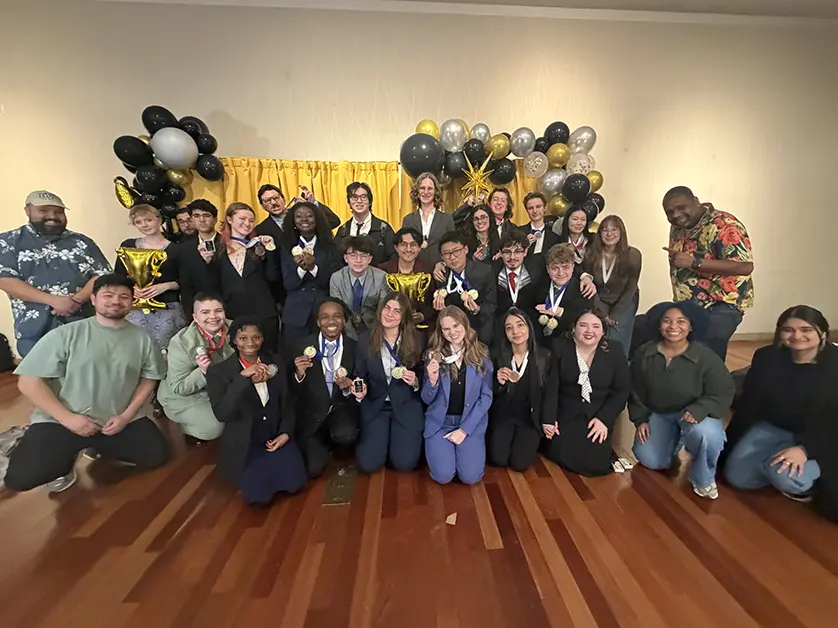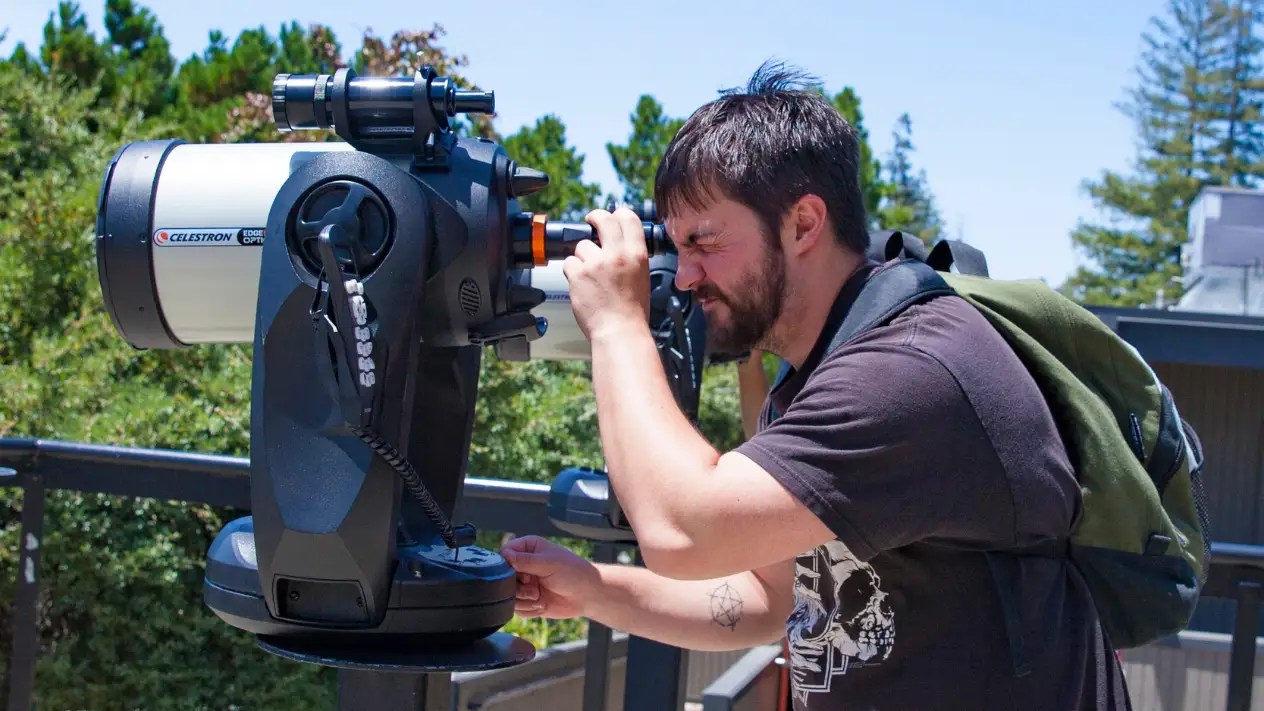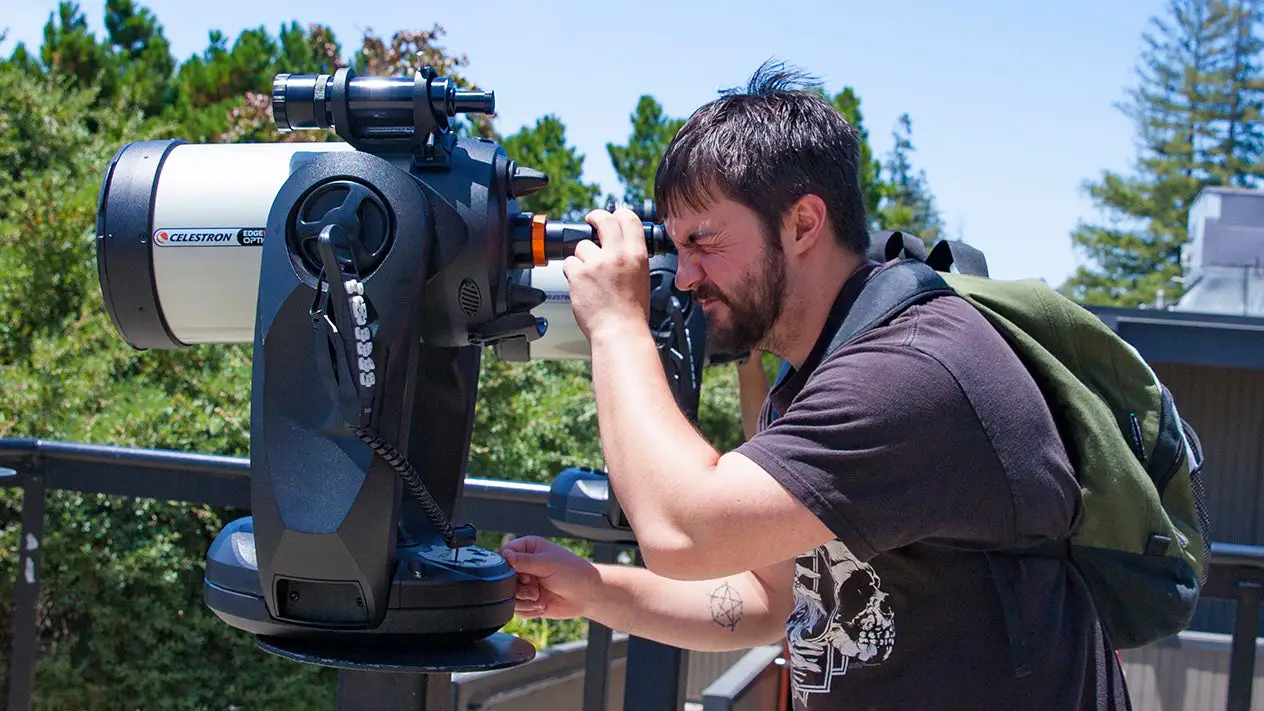Whether you're exploring astronomy for the first time or attending one of our public stargazing nights, the telescopes at the observatory offer an unforgettable window into the cosmos.
What does the observatory offer?
Enhanced Engagement from a Prime Location – located at the highest point on campus, the observatory offers excellent sky visibility and serves as a hub for interactive learning and outreach during classes, evening sessions, and community events.
Hands-On Learning – our small but mighty Celestron telescopes gives you direct experience with observing and telescope operation, deepening your understanding of astronomy through active exploration.
Accessible Viewing for All – these telescopes support regular classroom use and public events, making astronomy approachable and engaging.
Opportunities for Independent Projects – working with a faculty member, you can use our telescopes for independent study or research projects, gaining valuable skills in planning, data collection and scientific observation.
What do our telescopes show you?
Exceptional Optical Clarity — 8-inch Cassegrain opics provide at least 50 times magnification and light gathering power more that 800 times that of the human eye, allowing viewers to enjoy crisp, bright views of our moon, planets, star clusters, galaxies and more.
Deep Sky Access — an internal database of over 40,000 celestial objects like nebulae, star clusters and galaxies makes it easy to locate and view the wonders of the universe.
Computerized altitude-azimuth dual-fork mount with SkyAlign — allows quick, hassle-free setup and tracking, keeping objects centered during long sessions.
Safe Solar Viewing — equipped with special solar filters, the telescopes allow safe, direct observation of the Sun—including features like sunspots— adding a fascinating, real-time component to daytime astronomy.
Telescope Setup Skills — as part of class instruction, students learn how to properly set up and align the telescopes, building confidence and technical skills that enhance their overall observational experience.
The observatory re-sparked my interest in astronomy, so the following semester I just had to take the intro course. It’s a great way to knock out a science requirement, or in my case to learn something about the universe.
Tom Lewis Alum
Visiting the observatory
The planetarium is located at the top of the hill, above the planetarium, between the Life Sciences and Science & Technology buildings. The best place to park is Lot 4, along Stubbs Rd.
Meet our Astronomy Faculty


Related Programs
News

DVC Secures Commanding Victory at NCFA Spring Championship
February 24, 2026
Read DVC Secures Commanding Victory at NCFA Spring Championship
DVC Students Shine at Nationwide AAICE Student Works Expo
February 17, 2026
Read DVC Students Shine at Nationwide AAICE Student Works Expo
It’s Never Too Late: A Mother’s Journey Back to College and Into Community Health
January 27, 2026
Read It’s Never Too Late: A Mother’s Journey Back to College and Into Community Health
